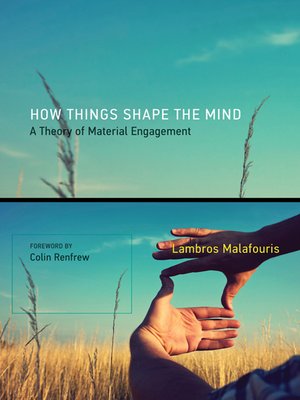
Sign up to save your library
With an OverDrive account, you can save your favorite libraries for at-a-glance information about availability. Find out more about OverDrive accounts.
Find this title in Libby, the library reading app by OverDrive.



Search for a digital library with this title
Title found at these libraries:
| Library Name | Distance |
|---|---|
| Loading... |
An increasingly influential school of thought in cognitive science views the mind as embodied, extended, and distributed rather than brain-bound or “all in the head.” This shift in perspective raises important questions about the relationship between cognition and material culture, posing major challenges for philosophy, cognitive science, archaeology, and anthropology. In How Things Shape the Mind, Lambros Malafouris proposes a cross-disciplinary analytical framework for investigating the ways in which things have become cognitive extensions of the human body. Using a variety of examples and case studies, he considers how those ways might have changed from earliest prehistory to the present. Malafouris's Material Engagement Theory definitively adds materiality—the world of things, artifacts, and material signs—into the cognitive equation. His account not only questions conventional intuitions about the boundaries and location of the human mind but also suggests that we rethink classical archaeological assumptions about human cognitive evolution.







